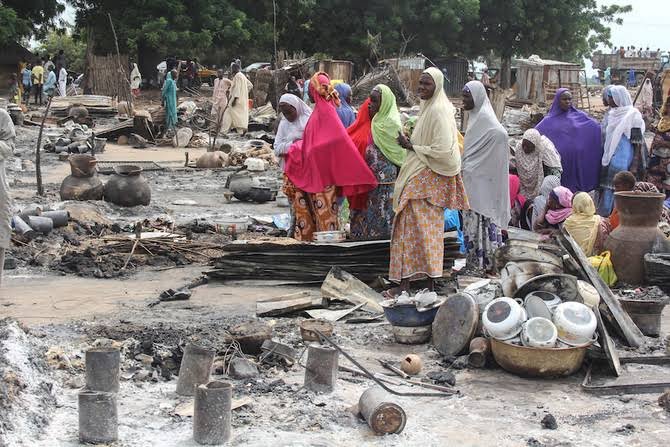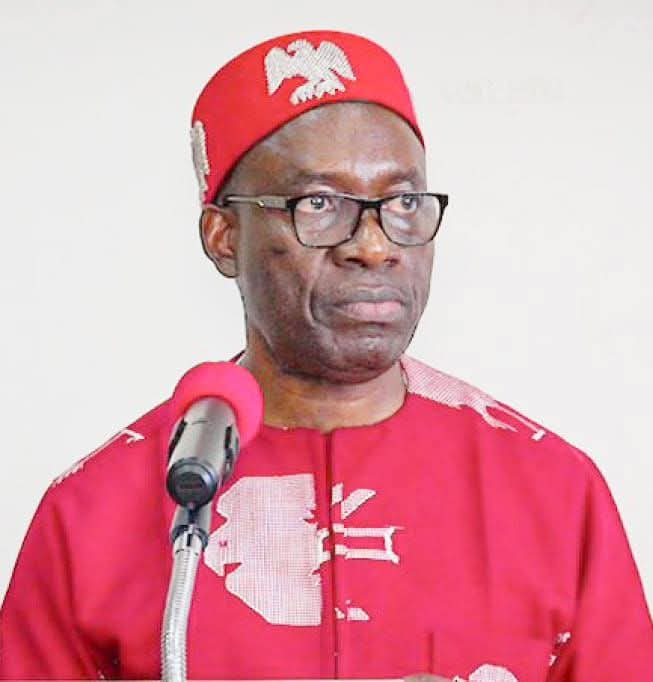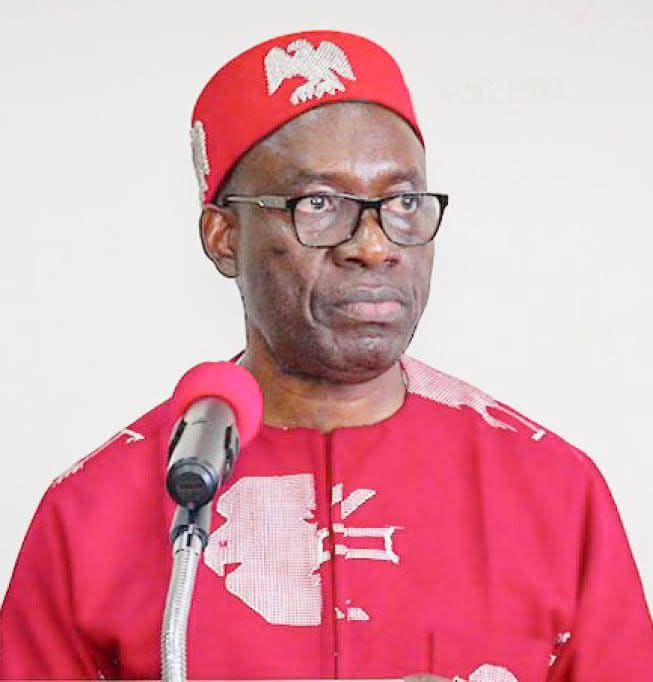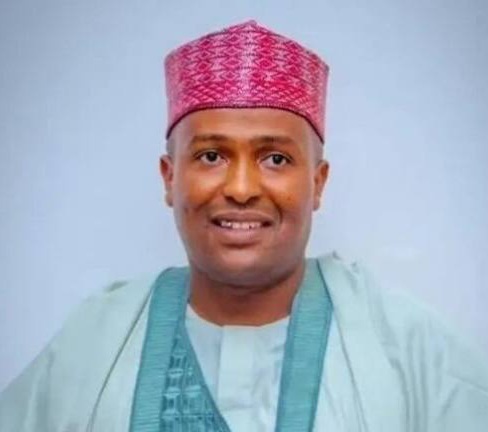News
Nigeria Records 81,413 Suspected Cholera Cases With 2,791 Deaths

Nigeria has disclosed that a total of 81,413 suspected cases of cholera have so far been recorded in the country with 2,791 deaths.
An epidiomology report issued by the Nigeria Centre for Disease Control (NCDC) stated that Cholera disease was reported in 28 states and Federal Capital Territory (FCT) in 2021.
The states are Abia, Adamawa, Bauchi, Bayelsa, Benue, Borno, Cross River, Delta, Ekiti, Enugu, FCT, Gombe, Jigawa, Kaduna, Kano, Katsina, Kebbi, Kogi, Kwara, Nasarawa, Niger, Ogun, Osun, Plateau, Sokoto, Taraba, Yobe, Rivers and Zamfara.
According to the NCDC, 15 states reported 1,825 suspected cases in the last one week.
The states included: Zamfara (524), Bauchi (347), Yobe (302), Katsina (282), Borno (139), Adamawa (76), Kano (46), Jigawa (22), Kebbi (22), Gombe (22), Sokoto (13), Kaduna (12), Abia (12), Kwara (5) and Taraba (1).
It said there was a 38 percent decrease in the number of new suspected cases in week 37 (1,825) compared with week 36 (2,955).
The report said: “Zamfara (524), Bauchi (347), Yobe (302), Katsina (282) and Borno (139) account for 87.3 percent of 1825 suspected cases reported in week 37
“During the reporting week, 36 Cholera Rapid Diagnostic Tests (RDT) were conducted. RDT conducted were from Adamawa (18), Kaduna (11), Zamfara (2), Yobe (2), Abia (2) and Kwara (1).”
Of this, a total of 21 (58%) were positive by RDT
“A total of 10 Culture tests were conducted in Katsina (6), Adamawa (3) and Kaduna (1). Of this, two (20 percent) were positive
“Of the cases reported, there were 55 deaths from Zamfara (19), Adamawa (7), Yobe (7), Jigawa (6) Katsina (5), Borno (5), Kebbi (2), Bauchi (2), and Kwara (2) states with a weekly case fatality ratio (CFR) of 3.0 percent,” it said.
The NCDC stated that cumulatively, as at September 19, 2021, a total of 81,413 suspected cases including 2,791 deaths
(CFR 3.4 percent) have been reported from 28 states and FCT in 2021.
The report stated that among the suspected cases since the beginning of the year, age group 5 – 14 years was the most affected age group for male and female.
Also, of all suspected cases, 50 percent are males and 50 percent are females.
In addition, the report said that three states of Bauchi (19,309 cases), Kano (11,783 cases) and Jigawa (10,758 cases), accounted for 51 per cent of all cumulative cases.
NCDC further said that 10 Local Government Areas across five states (Bauchi (4), Jigawa (2), Zamfara (2), Kano (1) and Katsina (1) have reported more than 1,000 cases.


News
Shettima: Tinubu’s Reforms Rebuilding Nigeria’s Global Credibility, Restoring International Confidence

Vice President Kashim Shettima has declared that President Bola Tinubu’s economic reforms are successfully rebuilding Nigeria’s international reputation and restoring global investor confidence that had eroded over years of policy inconsistency.
Speaking at the formal opening of Nigeria House during the 2026 World Economic Forum in Davos, Switzerland, Shettima emphasized that the establishment of the country’s first sovereign pavilion at the prestigious gathering represents concrete evidence of Nigeria’s renewed seriousness about engaging the global economy.
“Nigeria House is a response to the lapses of the past. It reflects our intention, our seriousness, and above all, it advertises both our readiness and our resolve to take a front-line seat in the discourse of the global economy, not as observers, but as participants with a clear sense of purpose and place,” the Vice President stated.
Shettima explained that the tangible benefits of the Tinubu administration’s challenging but necessary reforms are beginning to materialize, pointing to macroeconomic indicators that demonstrate fundamental improvement in Nigeria’s economic trajectory.
According to the Vice President, Nigeria’s economy expanded by approximately 3.9 percent in 2025, marking the fastest growth rate recorded in over a decade, driven primarily by a resilient non-oil sector that now accounts for roughly 96 percent of gross domestic product.
“Services, agriculture, finance, and technology are expanding, while non-oil revenues now make up nearly three-quarters of government collections, marking a structural shift away from oil dependence,” Shettima noted, adding that this diversification strategy positions Nigeria for sustainable long-term prosperity.
The Vice President revealed that inflation, which stood above 30 percent in late 2024, eased significantly by the conclusion of 2025, while external buffers improved with foreign reserves rising above 45 billion dollars and greater stability emerging in the foreign exchange market.
He emphasized that Nigeria’s decision to open up to the world more deliberately comes at a critical turning point in the country’s economic journey, with reform dividends becoming increasingly visible across multiple sectors.
Minister of Industry, Trade and Investment Dr. Jumoke Oduwole reinforced Shettima’s assessment, stating that Nigeria under the current administration is rebuilding trust, restoring credibility and positioning itself as a global center for wealth creation and strategic partnership.
The minister applauded the Vice President’s support in realizing the historic vision for Nigeria House Davos, describing the project as a demonstration of strong public-private partnership that reflects the rejuvenation of Nigeria’s economy and showcases national pride.
At a separate engagement, Shettima told participants at a high-level panel discussion titled “When Food Becomes Security” that Nigeria, renowned as the African giant, has awakened from its slumber under Tinubu’s dynamic and purposeful leadership.
The Vice President expressed optimism that with ongoing Renewed Hope Agenda reforms, the coming months will witness greater climate adaptation moving from pilot projects to reality, as well as a boom in intra-African trade far beyond the current 10.7 percent baseline.
Speaking at the inaugural convocation ceremony of the Professionals’ Certification Programme at the Presidential Villa in Abuja, Shettima revealed that foreigners now choose to participate in professional training courses in Nigeria, citing this trend as evidence that global confidence in the country is being restored.
“The ongoing reforms of President Tinubu’s administration are beginning to restore the confidence of the global community in Nigeria,” the Vice President stated, emphasizing that transparent procurement practices and institutional strengthening form critical pillars of the reform agenda.
Nigeria House Davos, according to Shettima, represents a deliberate action to consolidate the gains of Tinubu’s economic transformation efforts through high-level engagements targeted at attracting investments in the country’s non-oil sector.
The Vice President stressed that while government can open doors, create frameworks and de-risk environments, only private enterprise can animate growth, scale opportunity and translate policy into productivity, calling on the private sector to drive Nigeria’s economic renaissance.
Upon returning to Abuja from his week-long diplomatic and economic mission that included stops in Guinea-Conakry and Switzerland, Shettima declared that Nigeria has reclaimed a frontline seat in global and regional policy conversations.
News
“I Can Decide To Revoke The Land Allocated To Onitsha Main Market And Build A School On It” — Gov Soludo

Anambra State Governor, Professor Chukwuma Charles Soludo, has sparked fresh controversy after stating that he has the constitutional power to revoke the land allocated to Onitsha Main Market and repurpose it for public use, including building a school. The governor made the remark while addressing market leaders amid the ongoing dispute over the continued Monday sit-at-home observed by traders in the state.
Soludo recently ordered the closure of Onitsha Main Market for one week after traders allegedly complied with sit-at-home directives despite the state government’s ban on such actions. He described the practice as “economic sabotage” and warned that the government would no longer tolerate disruptions to commercial activities in Anambra, one of Nigeria’s major economic hubs.
According to the governor, the Land Use Act empowers the state to revoke land allocations for overriding public interest, adding that affected owners would be compensated and could challenge the compensation in court if dissatisfied. He further warned that shops that remain closed could be sealed, fined, or taken over by the government and reassigned to willing traders.
The decision has generated mixed reactions, with critics accusing the government of punishing ordinary traders and worsening economic hardship, while supporters argue that enforcing a full business week is necessary to restore economic stability and investor confidence in the state. Some lawmakers and stakeholders have also urged the governor to adopt dialogue and caution, citing potential losses and unrest from prolonged market closures.
As tensions continue, the development highlights the broader struggle between government authority, security concerns, and economic survival in the South-East, with Onitsha Main Market—one of West Africa’s largest commercial centres—at the centre of the storm.

News
Kano Assembly Speaker Jibril Falgore Leads 21 Lawmakers Out of NNPP After Governor’s Exit

The Speaker of Kano State House of Assembly, Jibril Ismail Falgore, alongside 21 other legislators, has formally resigned from the New Nigeria People’s Party following Governor Abba Kabir Yusuf’s departure from the political platform.
The mass resignation, announced on Saturday, includes the Deputy Speaker, Muhammad Bello Butu-Butu, Majority Leader Lawan Hussain, and other principal officers of the state legislature, signaling near-total collapse of NNPP structures in the assembly.
According to a statement released by the Chief Press Secretary to the Assembly, Kamaluddeen Sani Shawai, the lawmakers declared total support for Governor Yusuf, who had exited the party just 24 hours earlier alongside eight federal lawmakers and all 44 local government chairmen in the state.
The defecting legislators include Deputy Majority Leader Garba Shehu Fammar, Chief Whip Muddasir Ibrahim Zawachiki, Majority Whip Zakariyya Abdullahi Nuhu, and lawmakers from constituencies across Kano including Ajingi, Albasu, Bagwai/Shanono, Bebeji, Bunkure, Dawakin Kudu, Fagge, Gabasawa, Garko, Gwale and Karaye.
The statement emphasized that the Kano State House of Assembly had verified and authenticated the complete list of defecting lawmakers to properly inform the public and clarify their political position following the governor’s resignation from NNPP.
The legislators reaffirmed their unwavering commitment and loyalty to Governor Yusuf’s administration despite the political realignment, pledging to continue supporting the policies and programmes being implemented across the state.
Governor Yusuf had communicated his decision to leave NNPP in a letter addressed to the party chairman of Diso-Chiranchi Ward in Gwale Local Government Area, effective January 23, 2026, citing persistent internal disputes and legal challenges that have undermined party stability.
In the resignation letter, the governor expressed appreciation to NNPP for the platform and support extended to him since joining in 2022, while acknowledging that deepening internal divisions had created an untenable situation requiring decisive action.
The NNPP Secretary of Diso-Chiranchi Ward, Kabiru Zubairu, acknowledged receipt of the governor’s resignation while commending his achievements in infrastructure development, urban renewal, healthcare delivery, education and economic empowerment during his time in office.
Zubairu admitted the existence of lingering internal challenges within the party and stated that NNPP had no option but to accept the resignation, describing Governor Yusuf as one of the most outstanding governors produced by the political platform.
The wave of defections marks a dramatic political shift in Kano State, where NNPP had dominated since the 2023 elections under the influence of Senator Rabiu Musa Kwankwaso and the Kwankwasiyya movement.
NNPP national officials have condemned the development, labeling it a betrayal of the sacred trust given by Kano voters. National Publicity Secretary Ladipo Johnson dismissed claims of irredeemable party crisis as baseless, while Kwankwaso declared he is not for sale and would not compromise his principles.
-

 News2 years ago
News2 years agoHardship: We Plan To Establish A National Commodity Board To Crash Food Prices – VP Shettima
-
News8 years ago
Blog Reader; Samson Osagiede Celebrates Fiancè Benedicta Daniels’s Birthday With Sweet Words
-
Home9 years ago
News Channel claims Donald Trump is an orphan from Pakistan,share alleged childhood photo
-
Home9 years ago
Another $175m Found in Patience Jonathan’s wife’s firm’s Bank Account
-
Home9 years ago
Oil Spillage: House of Reps Member Shares Photos of the Water her Constituents Drink .
-
Home9 years ago
Zara Buhari & Ahmed Indimi’s Wedding Access Card
-

 Sport7 years ago
Sport7 years agoModric, Marta Wins 2018 FIFA Best Player Of The Year Awards ⚽️
-
News8 years ago
The Best Video You’ve Seen Today?
